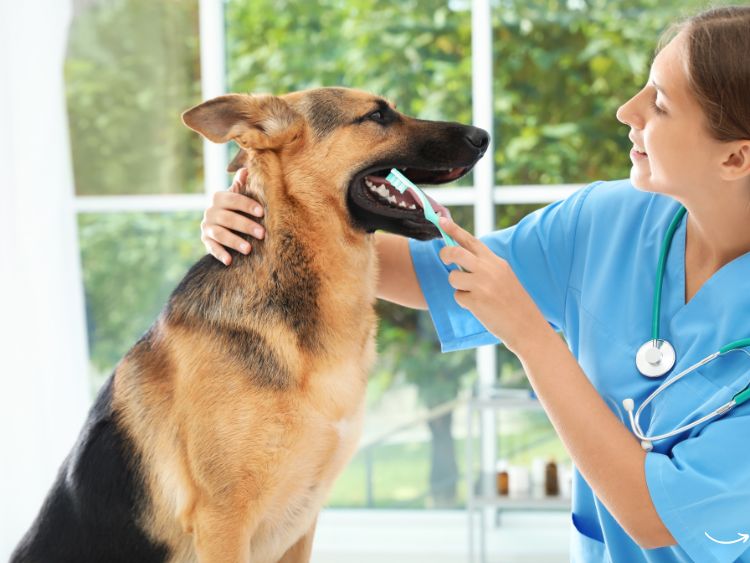Hey there, pet parents! If you’re reading this, it means you’re on the lookout for the best care possible for your furry, feathered, or scaly friend. Choosing the right animal care hospital can be as daunting as picking a good pediatrician for your kids. But fret not! We’re here to guide you through the ins and outs of finding a top-notch animal care hospital that’ll have your pet feeling fit as a fiddle. So, let’s dive right in, shall we?
What to Look for in an Animal Care Hospital
When it comes to selecting an animal care hospital, there are a few key factors you’ll want to consider. Here’s a handy list to get you started:
1. Reputation and Reviews
First and foremost, check the hospital’s reputation. What are other pet owners saying? Look for reviews online and ask for recommendations from friends, family, or your local pet community. A hospital with glowing reviews is often a safe bet.
2. Qualified and Compassionate Staff
The staff at an animal care hospital should be well-trained, experienced, and, above all, compassionate. After all, you want your pet to be in the best hands possible.
3. Range of Services
Make sure the hospital offers a wide range of services. From routine check-ups and vaccinations to emergency care and surgeries, a full-service hospital can cater to all your pet’s needs under one roof.
4. Cleanliness and Equipment
A clean, well-maintained facility with up-to-date equipment is non-negotiable. You wouldn’t want to be treated in a dingy hospital, and neither should your pet.
5. Location and Hours
Convenience matters! Choose a hospital that’s close to home and has flexible hours. Emergencies don’t stick to a 9-5 schedule, and neither should your vet.
Services Offered by an Animal Care Hospital
Routine Check-Ups
Regular check-ups are crucial for maintaining your pet’s health. During these visits, the vet will perform a thorough physical examination, update vaccinations, and check for any signs of illness.
Emergency Care
Accidents happen, and when they do, having a reliable animal care hospital that offers 24/7 emergency services is a lifesaver. They’ll be equipped to handle everything from minor injuries to life-threatening conditions.
Diagnostic Services
Advanced diagnostic tools like X-rays, ultrasounds, and blood tests help vets diagnose and treat health issues accurately. A hospital with comprehensive diagnostic services can offer quicker and more effective treatments.
Surgical Services
Whether it’s a routine spay/neuter procedure or a more complex surgery, you’ll want a hospital that has skilled surgeons and modern surgical facilities.
Dental Care
Oral health is just as important for pets as it is for humans. Look for a hospital that offers dental cleanings, extractions, and other dental services.
Specialty Services
Some animal care hospitals offer specialty services such as oncology, dermatology, and cardiology. If your pet has a specific health condition, finding a hospital with these services can be a game-changer.
Tips for Your First Visit to an Animal Care Hospital
Bring Your Pet’s Medical Records
Having your pet’s medical history handy can help the vet provide better care. Bring any records of vaccinations, previous illnesses, surgeries, and medications.
Prepare a List of Questions
Jot down any questions or concerns you have about your pet’s health. This ensures you don’t forget anything important during the appointment.
Observe Your Pet’s Behavior
Take note of any changes in your pet’s behavior or symptoms they’re experiencing. This information can be invaluable to the vet.
Stay Calm and Reassuring
Pets can pick up on our emotions. Stay calm and reassuring to help your pet feel more at ease during the visit.
Common Health Issues Addressed by Animal Care Hospitals
Skin Allergies and Infections
Pets can suffer from various skin conditions, including allergies, infections, and parasites like fleas and ticks. A good animal care hospital will be able to diagnose and treat these issues effectively.
Gastrointestinal Problems
Vomiting, diarrhea, and loss of appetite are all signs of gastrointestinal issues. These can be caused by infections, parasites, or dietary indiscretions. Veterinary hospitals have the tools to diagnose and treat these problems.
Orthopedic Conditions
Joint pain, fractures, and arthritis are common in pets, especially as they age. Animal care hospitals offer treatments ranging from medication to surgery to improve your pet’s quality of life.
Dental Disease
Bad breath, loose teeth, and difficulty eating are signs of dental disease. Regular dental check-ups and cleanings can prevent these issues and keep your pet’s mouth healthy.
Heart Disease
Just like humans, pets can suffer from heart disease. Early detection and treatment are crucial. Veterinary hospitals can perform diagnostic tests and provide treatments to manage heart conditions.
FAQs about Animal Care Hospitals
1. How often should I take my pet to the animal care hospital?
Regular check-ups are recommended at least once a year. However, puppies, kittens, and senior pets may need more frequent visits.
2. What should I do in case of an emergency?
Call your animal care hospital immediately. If they offer 24/7 emergency services, they’ll guide you on what to do next. If not, they may direct you to the nearest emergency vet clinic.
3. How can I tell if my pet is in pain?
Signs of pain in pets include changes in behavior, reduced activity, limping, and vocalizing more than usual. If you suspect your pet is in pain, schedule a visit to the vet.
4. What are the benefits of pet insurance?
Pet insurance can help cover the cost of veterinary care, including emergencies, surgeries, and chronic conditions. It provides financial peace of mind and ensures your pet gets the care they need.
5. Can animal care hospitals help with behavioral issues?
Yes, many veterinary hospitals offer behavioral consultations and training services. They can help address issues like aggression, anxiety, and inappropriate elimination.
Conclusion
Choosing the right animal care hospital is a crucial decision for any pet owner. By considering factors like reputation, staff qualifications, range of services, and facility cleanliness, you can find a hospital that meets your pet’s needs. Regular check-ups, prompt treatment of health issues, and a compassionate veterinary team are key to keeping your pet happy and healthy. Remember, your pet’s well-being is in your hands, so don’t hesitate to seek out the best care possible.
Authoritative Links
For further reading and reliable information, check out these resources:
- https://www.avma.org/
- https://www.aaha.org/
- https://www.petmd.com/
- https://www.aspca.org/
- https://www.vetmed.wsu.edu/
There you have it! A comprehensive guide to finding the perfect animal care hospital for your beloved pet. Whether it’s routine care or an emergency, having a trusted veterinary partner makes all the difference. So, go ahead and give your pet the best care they deserve!







